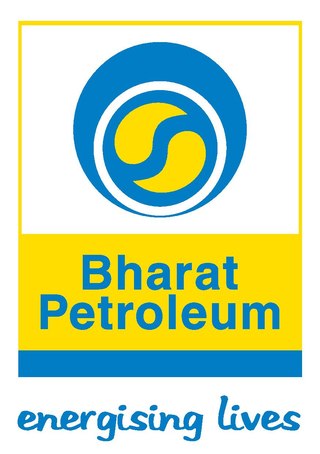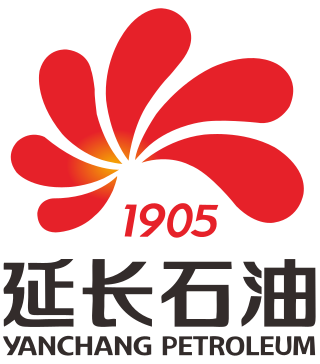
The Economy of Qatar is one of the highest in the world based on GDP per capita, ranking generally among the top ten richest countries on world rankings for 2015 and 2016 data compiled by the World Bank, the United Nations, and the International Monetary Fund (IMF). The country's economy has grown despite sanctions by its neighbors, Saudi Arabia and the United Arab Emirates. Mainly because the country exports primarily to Japan, South Korea, India and China, making the sanctions effectively redundant as neither Saudi Arabia nor the United Arab Emirates have imposed trading penalties such as tariffs or embargoes on any of these countries for trading with Qatar, or offering incentives such as discounts for their own energy exports to reduce Qatari exports.

The economy of Bahrain is heavily dependent upon oil and gas. The Bahraini Dinar is the second-highest-valued currency unit in the world. Since the late 20th century, Bahrain has heavily invested in the banking and tourism sectors. The country's capital, Manama is home to many large financial structures. Bahrain's finance industry is very successful. In 2008, Bahrain was named the world's fastest growing financial center by the City of London's Global Financial Centres Index. Bahrain's banking and financial services sector, particularly Islamic banking, have benefited from the regional boom driven by demand for oil. Petroleum is Bahrain's most exported product, accounting for 60% of export receipts, 70% of government revenues, and 11% of GDP. Aluminium is the second most exported product, followed by finance and construction materials.

Saudi Aramco, officially the Saudi Arabian Oil Group or simply Aramco, is a state-owned petroleum and natural gas company that is the national oil company of Saudi Arabia. As of 2022, it is the second-largest company in the world by revenue and is headquartered in Dhahran. Saudi Aramco has both the world's second-largest proven crude oil reserves, at more than 270 billion barrels, and largest daily oil production of all oil-producing companies. It is the single greatest contributor to global carbon emissions of any company in the world since 1965.

PetroChina Company Limited is a Chinese oil and gas company and is the listed arm of state-owned China National Petroleum Corporation (CNPC), headquartered in Dongcheng District, Beijing. The company is currently Asia's largest oil and gas producer. Traded in Hong Kong and New York, the mainland enterprise announced its plans to issue stock in Shanghai in November 2007, and subsequently entered the constituent of SSE 50 Index. In the 2020 Forbes Global 2000, PetroChina was ranked as the 32nd-largest public company in the world.

China Petroleum and Chemical Corporation, or Sinopec, is a Chinese oil and gas enterprise based in Beijing. It is listed in Hong Kong and also trades in Shanghai.

Sonatrach is the national state-owned oil company of Algeria. Founded in 1963, it is known today to be the largest company in Africa with 154 subsidiaries, and often referred as the first African oil "major". In 2021, Sonatrach was the seventh largest gas company in the world.

The China National Petroleum Corporation (CNPC) is a major national oil and gas corporation of China and one of the largest integrated energy groups in the world. Its headquarters are in Dongcheng District, Beijing. CNPC was ranked fourth in 2022 Fortune Global 500, a global ranking of the largest corporations by revenue.

Kuwait Petroleum Corporation is Kuwait's major national oil company, headquartered in Al Kuwait.

The Abu Dhabi National Oil Company, known by its acronym ADNOC, is the state-owned oil company of the United Arab Emirates (UAE).

Bharat Petroleum Corporation Limited (BPCL) is an Indian public sector undertaking (PSU) under the ownership of the Ministry of Petroleum and Natural Gas, Government of India. It operates three refineries in Bina, Kochi and Mumbai. BPCL is India's second-largest government-owned downstream oil producer, whose operations are overseen by the Ministry of Petroleum and Natural Gas. BPCL was ranked 309th on the Fortune list of the world's biggest PSUs in 2020, and 1052nd on Forbes's "Global 2000" list in 2023.

QatarEnergy, formerly Qatar Petroleum (QP), is a state owned petroleum company of Qatar. The company operates all oil and gas activities in Qatar, including exploration, production, refining, transport, and storage. The President & CEO is Saad Sherida al-Kaabi, Minister of State for Energy Affairs. The company's operations are directly linked with state planning agencies, regulatory authorities, and policy making bodies. Together, revenues from oil and natural gas amount to 60% of the country's GDP. As of 2018 it was the third largest oil company in the world by oil and gas reserves. In 2022, the company had total revenues of US$52bn, a net income of US42.4bn, and total assets of US$162bn. In 2021, QatarEnergy was the fifth largest gas company in the world.

Shaanxi Yanchang Petroleum Group is a Chinese conglomerate mainly engaged in the exploration, production, transportation, and sale of petroleum and natural gas, and in addition the production and sales of petrochemical products. Founded in 1905, it is the fourth largest oil producer in the country. Almost all its reserves and refineries are located in Shaanxi.
The Al Zour Refinery is an oil refinery in Southern Kuwait. It is the second-largest refinery in the Middle East. It is an essential part of Kuwait Vision 2035. It is Kuwait's largest environmental friendly oil refinery.

Although there are numerous oil companies operating in Canada, as of 2009, the majority of production, refining and marketing was done by fewer than 20 of them. According to the 2013 edition of Forbes Global 2000, canoils.com and any other list that emphasizes market capitalization and revenue when sizing up companies, as of March 31, 2014 these are the largest Canada-based oil and gas companies.

Iran is an energy superpower and the petroleum industry in Iran plays an important part in it. In 2004, Iran produced 5.1 percent of the world's total crude oil, which generated revenues of US$25 billion to US$30 billion and was the country's primary source of foreign currency. At 2006 levels of production, oil proceeds represented about 18.7% of gross domestic product (GDP). However, the importance of the hydrocarbon sector to Iran's economy has been far greater. The oil and gas industry has been the engine of economic growth, directly affecting public development projects, the government's annual budget, and most foreign exchange sources.

OQ, formerly known as Oman Oil Company, is an energy investment company headquartered in Muscat, Oman. It is a wholly owned subsidiary of the Government of Oman through the Oman Investment Authority.

China National Offshore Oil Corporation, or CNOOC Group, is the third-largest national oil company in China, after CNPC and China Petrochemical Corporation. The CNOOC Group focuses on the exploitation, exploration and development of crude oil and natural gas in offshore China, along with its subsidiary COOEC.

Ceylon Petroleum Corporation, commonly known as CEYPETCO (CPC), is a Sri Lankan oil and gas company. Established in 1962 and wholly owned by the Government of Sri Lanka, it is the largest oil company in Sri Lanka. It was formed in 1961 by nationalisation and expropriation of all private oil companies in Sri Lanka at the time of its formation. It is under the ownership of Ministry of Petroleum Resources Development headquartered in Colombo. It is the largest government owned company in the country, with an operational profit of Rs. 33.9 billion for the financial year 2020.

The Bahrain Petroleum Company (BAPCO) is an integrated petroleum company that is the national oil company of Bahrain.
According to the United States Energy Information Administration (EIA), Pakistan may have over 9 billion barrels (1.4×109 cubic metres) of petroleum oil and 105 trillion cubic feet (3.0 trillion cubic metres) in natural gas (including shale gas) reserves.
















